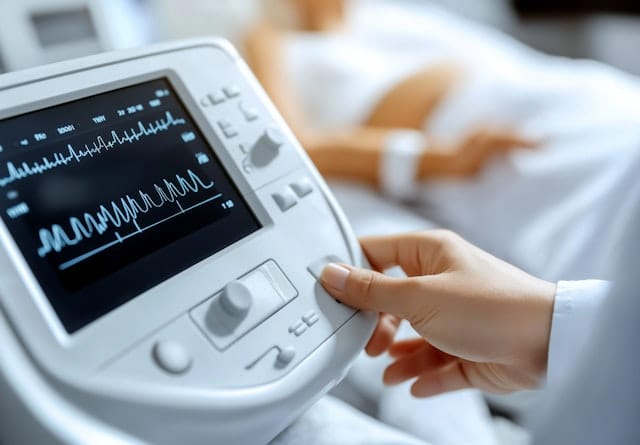Who Owns Your Health Data? The Fight Between Patients, Big Tech, and Governments
Table of Content
As a medical doctor who transitioned into tech, blogging about open-source medical software has become one of my passions. Over the years, a question keeps cropping up—whether from fellow doctors, developers, or even patients themselves:
Who owns a patient’s medical records?
At first glance, this might seem like a purely ethical question, but dig deeper, and you’ll realize it’s far more complex. It’s a question of privacy, security, logistics, and accountability. How are medical records stored? Who gets access to them? How are they shared between healthcare providers? And, perhaps most importantly, what safeguards are in place to prevent misuse?
The Short Answer
Technically, ownership varies depending on where you are in the world. In many countries, the healthcare provider—be it a clinic, hospital, or practitioner—“owns” the physical or digital format of the record.
However, the data within those records belongs to the patient. Patients have the right to access their data, correct it if necessary, and even request its transfer to another provider.
But here’s the catch: many healthcare providers don’t make it easy.
Some systems are proprietary walled gardens, intentionally making sharing and accessibility difficult, while others simply lack the infrastructure for secure, seamless record management.
Why This Matters
When patient data is locked away in outdated systems, it not only hampers care but also exposes sensitive information to unnecessary risks. A breach in these systems can mean more than just financial damage—it’s a violation of human dignity.
This is why we need better, transparent solutions for handling medical records.
When you visit a doctor, your health data is entered into Electronic Medical Records (EMRs), Patient Portals, and Hospital Information Systems (HIS).
But who really owns this data? Is it you, the hospital, or the tech companies that manage these systems? As more healthcare services go digital, knowing where your data goes – and who can use it – is crucial.
The Data Tug-of-War
1- Hospitals and Clinics:
Most health providers argue that they own the data since they generate and store it in their EMRs and HIS. This allows them to manage your care efficiently.
But this also means they control access, sometimes making it difficult for patients to get their records.
2- Big Tech Companies:
Providers often use third-party systems, such as cloud-based EMRs and patient portals managed by companies like Epic Systems, Cerner, or even tech giants like Google and Microsoft.
These companies store vast amounts of health data and can sometimes use it for research, analytics, or AI model training – with or without your knowledge.
3- Governments:
Many countries have regulations like HIPAA (U.S.), GDPR (Europe), or KVKK (Turkey) to protect patient data.
However, governments also demand access to health data for public health initiatives, creating a thin line between protection and overreach.

Why Patients Need to Be Aware
1- Data Portability:
While patient portals give you access to your records, transferring data between different providers can still be difficult.
If your hospital uses one system and your specialist another, data silos can hinder seamless care.
2- Privacy Risks:
Health data breaches are increasing. In 2023 alone, over 133 million health records were exposed globally due to breaches (source).
Your sensitive information – diagnoses, treatments, and medications – can be stolen and misused.
3- Third-Party Access:
Some EMR systems share anonymized data with third parties, including pharmaceutical and insurance companies.
Though “anonymized,” this data can sometimes be re-identified, compromising your privacy.
4- Informed Consent:
Many hospitals require you to sign consent forms that allow them to share data for research or quality improvement. Understanding what you’re agreeing to is critical.

How to Protect Your Health Data
Request Access
Legally, you are entitled to your health records. Regularly check your data in patient portals and request copies of your records.
Know Your Rights
Familiarize yourself with privacy regulations like HIPAA, KVKK or GDPR, which outline your rights regarding data access, correction, and deletion.
Limit Sharing
Opt out of data-sharing agreements if possible, especially those involving third-party analytics or marketing.
Secure Your Portal Access
Use strong passwords and enable two-factor authentication for patient portals to reduce the risk of unauthorized access.
This can be easily done, using IAM "Identity and access management" solution.
Recommendations: Getting It Right with Patient Records
1. Ownership Should Be Transparent
Hospitals, clinics, and healthcare providers need to establish clear policies about who manages and accesses patient records. Patients should be informed about how their data is stored, shared, and used.
2. Standardize Security Protocols
Encrypt data at rest and in transit. Use multi-factor authentication (MFA) for accessing patient records. Keep an audit trail of who accessed what and when.
3. Empower Patients
Patients should have easy access to their records. Implement portals where they can view, download, and share their information securely.
Final Thoughts
Your health data is a valuable asset. While hospitals, tech companies, and governments have their own interests in managing it, you have the right to know where it’s going and how it’s being used. Stay informed, protect your data, and assert your rights as a patient.
Let’s face it: the healthcare industry has been lagging when it comes to IT innovation. But adopting open-source tools for managing patient records and identity is a step toward putting patients back in control while keeping their data safe.
As someone who bridges the worlds of medicine and tech, I can tell you this: open-source isn’t just an option—it’s the right choice.












